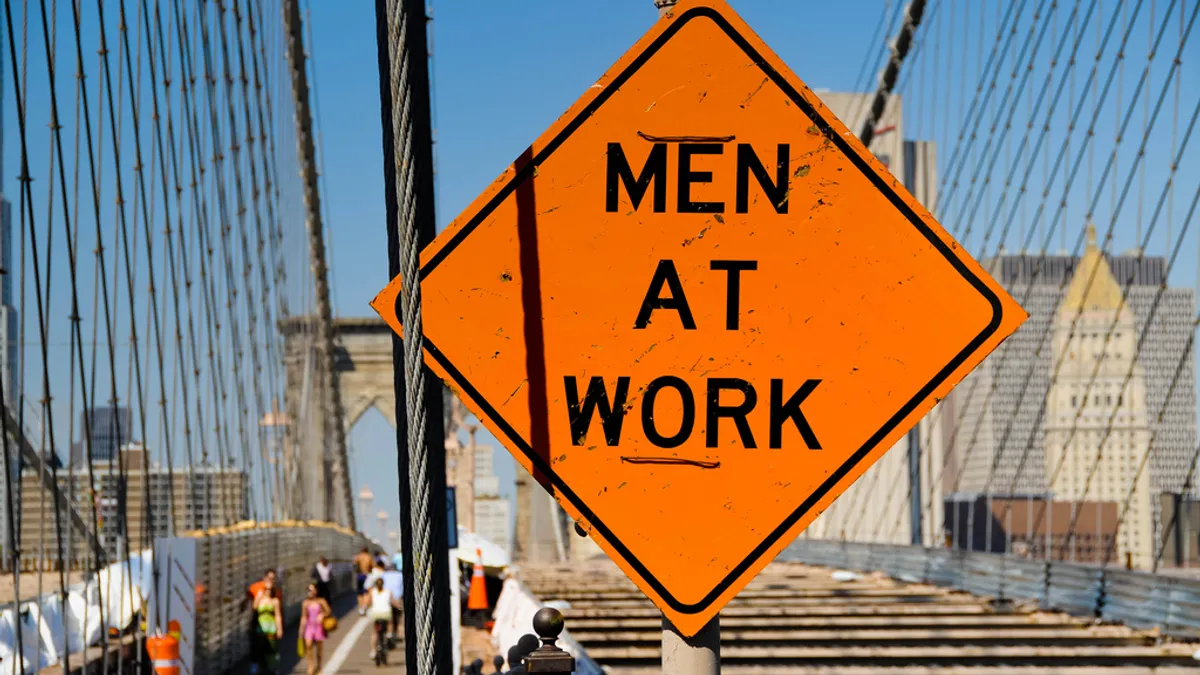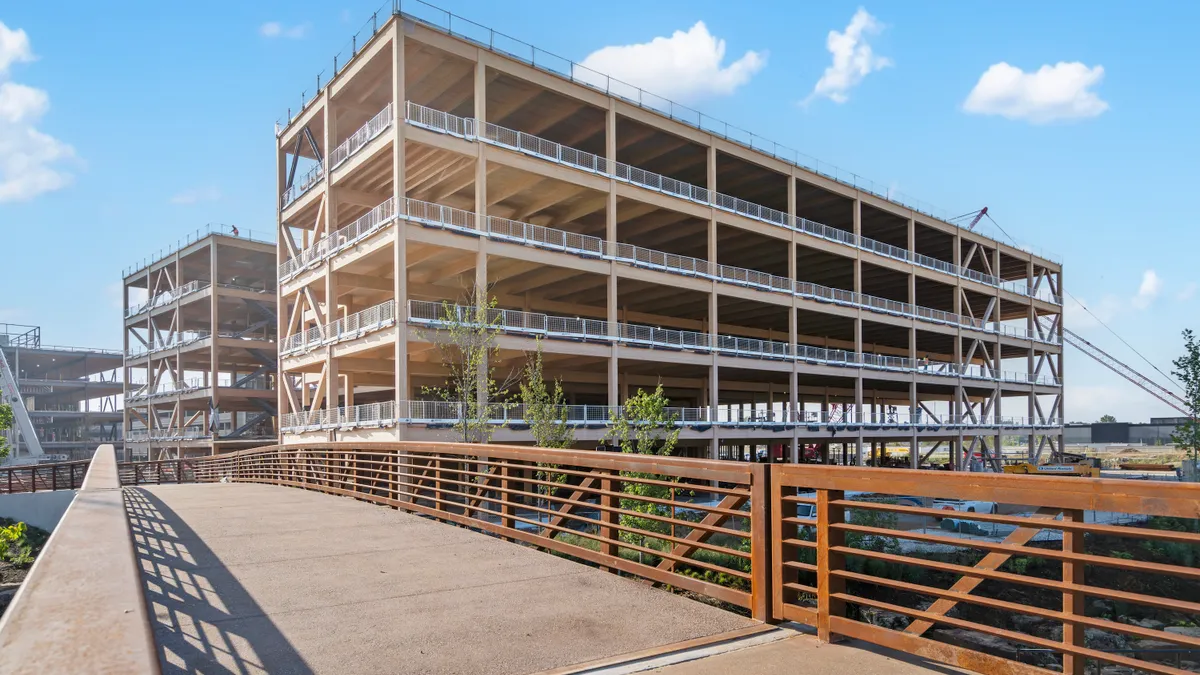"Whose secretary are you?"
I’ve heard this — and a lot worse — several times at construction industry events in multiple cities. The obvious question: Would a male reporter be asked this if he were taking notes during a conference? This issue is certainly not unique to construction, but it's an industry with a particularly bad reputation, and my experiences have shown me why that's the case.
I have edited and reported for Construction Dive for more than a year. Before my first conference with thousands of construction professionals, my co-workers warned me that the events would be dominated by men. What I hadn’t prepared for was the constant stream of sexist, belittling remarks from men who were the same people I was trying to reach with my publication. These were the professionals I wanted to connect with, yet these were also the people who forced me to bite my tongue after calling me "sweetheart" four times in a row without learning my name.
Those comments were far from rare during industry events. I have now attended seven construction conferences across the U.S. After the first few shows, I learned to wear neutral colors, as bright tones tend to attract endless comments about what I am wearing. I learned how to brush off condescending comments like "Look at you with your laptop and walking in a hurry like you have somewhere to be." I learned how to pretend to receive a phone call when a company exec followed me around an exhibit hall after I asked to be left alone. I learned to look past the excitement in their eyes when they found out I was at the event alone and to politely turn down their offer to get a drink at the hotel.
I also learned to live with disappointment. I learned how to constantly remind myself why I cared about this exciting and complicated industry, as it was pretty difficult to recall at times.
I knew construction was heavily male, but I took for granted the respect I expected from these professionals. It didn’t take long to realize they didn’t take me seriously. Once I explain that I am a reporter from a trade publication, my interactions with attendees don’t often transform into ones of respect. They typically end with them asking if I am at the event alone, and who I am getting dinner with at night.
I’m not asking for special treatment. I am asking for professionals at these events to treat me the same way they would treat any journalist. And women construction professionals should be treated as any other member of the industry.
Some events — typically the homebuilding shows — have higher percentages of women attendees, and I can feel more comfortable letting my guard down, as I interact with as many women as men. The majority of the shows, however, are dominated by men who aren’t used to younger women attending their business events.
Last week, I spoke with a female engineer about her experience as a construction industry veteran. She told me a story about when she worked for a major general contractor. A client called and asked to speak to an engineer. She responded that she was an engineer, and he said that no, she was not who he was looking for. He continued to press to talk to someone else, and finally she asked, "Are you looking to talk to an engineer, or to a man?"
Construction is in the midst of a crippling worker shortage. One of the main contributing concerns is the lack of women, as the industry is only 9% female. If industry leaders took a look at themselves and their behavior at events, they would immediately see that they are one of the biggest obstacles. Lingering stares and a lack of respect are creating a barrier for women seeking careers in the industry. The chasm between the two genders benefits no one, yet no one has found a way to rectify it.
During the most recent convention I attended, one session addressed workforce development and ways to attract employees during the labor shortage. Attendees spilled out the door waiting to get into that discussion, as they lined the walls to learn about tactics to draw in more workers. Later that day, another session addressed the lack of diversity in the construction industry. The room was about one-third full, and most attendees were women or minorities. This disparity demonstrates the clear disconnect between professionals recognizing there is a problem, yet ignoring a solution.
Although there are plenty of men who do treat women with respect, they still see the problems happening. None are surprised when I describe my experiences. So if they’re aware of the situation, are they doing anything to change it?
I don’t know if construction is my passion, or if I will be covering the industry in 20 years. I do know that I would be lying if I said these experiences haven’t left me discouraged or questioning whether I can garner the respect from industry professionals that I have worked so hard to achieve.
Until the true decision makers open their eyes to the factors keeping women away, nothing will improve. The construction industry will struggle to keep up with other industries that aren’t afraid to change amid an evolving workforce. "This is just the way it is" is not a sufficient excuse. Change is no longer simply right; it’s necessary.
Despite all this, I will attend several more conferences this year. I’ll go into each event with the sole intention of doing my job well. I hope I will be able to accomplish that goal without needing to tell people that I am not there taking notes for my boss.



















